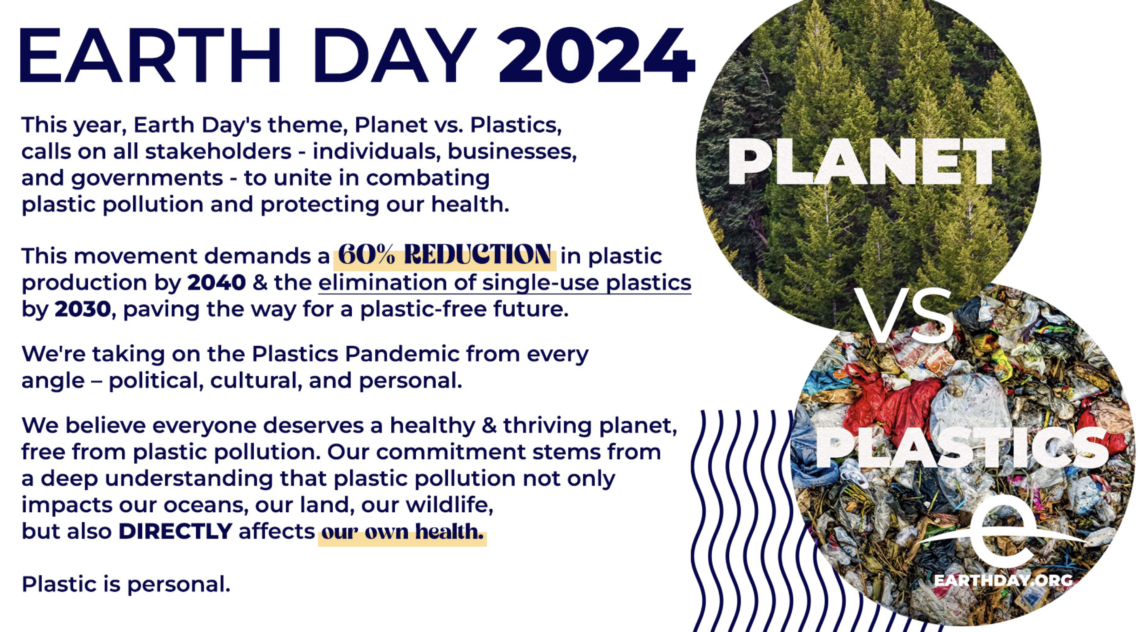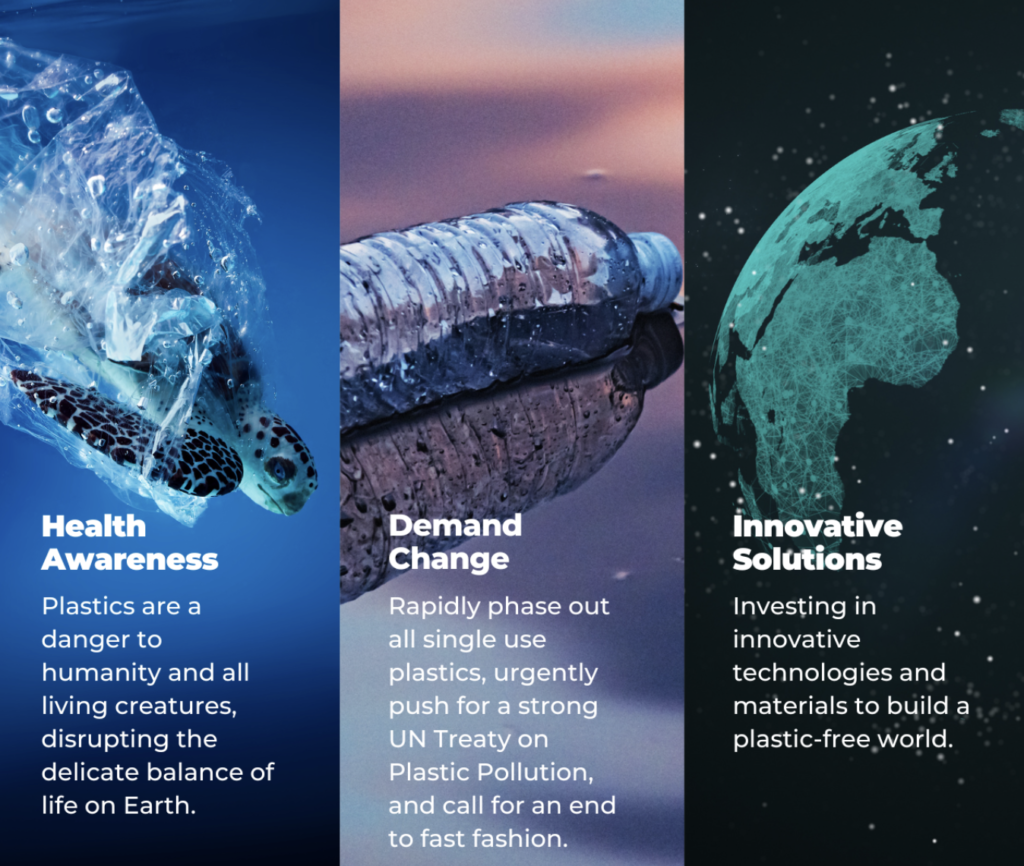
Earth Day – April 2nd 2024
Earth Day, initiated by US Senator Gaylord Nelson in 1970, is an annual event celebrated worldwide on April 22nd to raise awareness about environmental issues and inspire action to protect the planet. It began as a grassroots movement to address pressing environmental concerns, gaining momentum across the United States and eventually spreading globally. The primary goal of Earth Day is to mobilize individuals, communities, and governments to take meaningful action towards environmental conservation and sustainability.
The theme for Earth Day 2022 is ‘Planet vs. Plastics’, focusing on the urgent need to reduce plastic production and consumption for the health of both humans and the planet. Plastic pollution has become a significant environmental problem, with millions of tons of plastic waste polluting our oceans, harming marine life, and contaminating ecosystems. By raising awareness about the detrimental effects of plastic pollution and advocating for solutions to reduce plastic use, Earth Day aims to address this critical issue and promote a more sustainable future.

The origins of Earth Day can be traced back to a series of environmental disasters and growing concerns about pollution in the late 1960s. US Senator Gaylord Nelson was inspired to take action after witnessing the devastating effects of a massive oil spill off the coast of Santa Barbara, California, in 1969. Concerned about the lack of attention given to environmental issues, Nelson sought to harness the energy of the growing environmental movement to raise awareness and advocate for environmental protection.
With the help of activist Denis Hayes, Nelson organized the first Earth Day on April 22, 1970. The date was chosen strategically to maximize student participation, falling between Spring Break and Final Exams on college campuses across the United States. The inaugural Earth Day saw millions of Americans participate in rallies, marches, and educational events, signaling a growing public demand for action on environmental issues.
Since its inception, Earth Day has evolved into a global phenomenon, with over 192 countries participating in various activities and events to promote environmental awareness and action. The United Nations officially recognizes Earth Day as International Mother Earth Day, highlighting the importance of environmental stewardship and sustainable development.
In 2016, Earth Day took on added significance when world leaders gathered at the United Nations headquarters in New York City to sign the Paris Agreement on climate change. The historic agreement, adopted on April 22nd, aims to limit global warming to well below 2 degrees Celsius above pre-industrial levels and pursue efforts to limit the temperature increase to 1.5 degrees Celsius. The Paris Agreement represents a landmark commitment by nations around the world to combat climate change and transition to a low-carbon future.
The theme ‘Planet vs. Plastics’ underscores the critical need to address the growing threat of plastic pollution and its impact on the environment and human health. Plastic pollution poses a significant challenge to marine ecosystems, with millions of tons of plastic waste entering the oceans each year. Marine animals ingest plastic debris, mistaking it for food, leading to injury, starvation, and death. Microplastics, tiny plastic particles, have also been found in seafood, posing potential health risks to humans.
To tackle the issue of plastic pollution, Earth Day organizers are calling for a 60% reduction in the production of plastics by 2040 and advocating for policies and initiatives to promote plastic alternatives, recycling, and waste reduction. By raising awareness about the environmental and health impacts of plastic pollution and promoting sustainable solutions, Earth Day aims to inspire individuals, businesses, and governments to take action and protect our planet for future generations.





